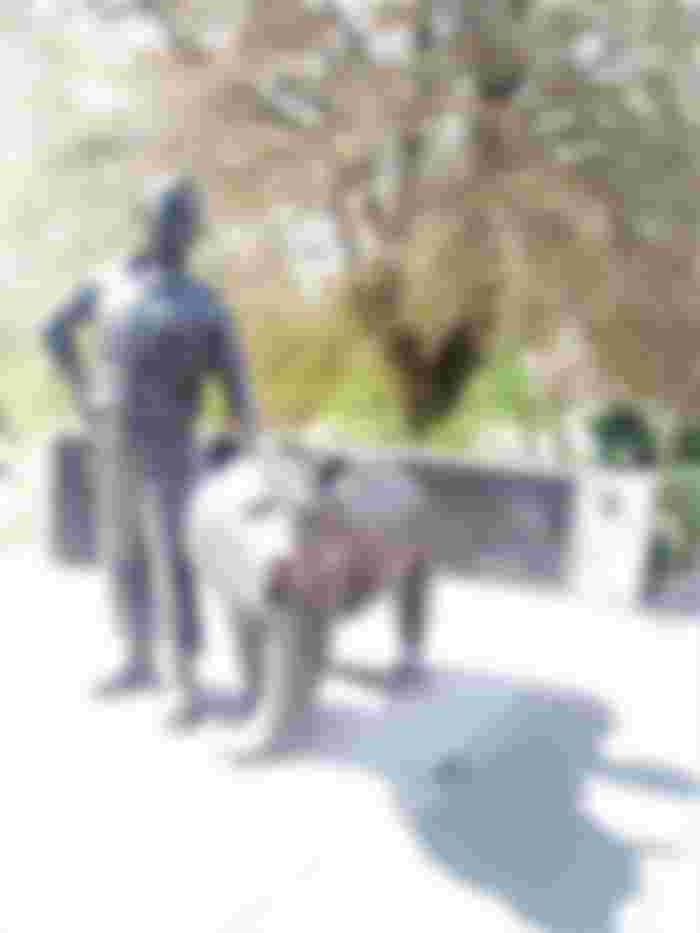July 7th 2021
So I was unpacking a box this morning and took out a bear, well a toy bear, actually Broxi my football team mascot bear. It got me thinking about bears and here is a wee true story about Wojtek an amazing bear that has a monument to him in Princes Street gardens in Edinburgh.
The Background
We need to go back to 1939. Perhaps you should get a cup of tea whilst reading this and the story from @Marinov about milk tea might help you!
As you know 1939 was during the second world war. Following the invasion of Eastern Poland by the Soviet Union in 1939, many Polish civilians were deported to the Soviet Union.
A new army called the Anders' Army left the Soviet Union heading for Iran. Thousands of Polish civilians who had been deported in 1939 accompanied this army.
8 April 1942 ~ A day to remember
Whilst the Anders' Army was in Iran they were at a railroad station in Hamadan. Hamadan is one of the oldest cities in Iran and is surrounded by foothills of the Alvand Mountain.
On 8 April 1942, some Polish soldiers met a young Iranian boy. This young boy had just found a bear cub whose mother had been shot dead by some hunters.
It so happened that one of the civilian refugees accompanying the army was eighteen-year-old Irena (Inka) Bokiewicz. She also happened to be the great-niece of General Boleslaw Wieniawa-Dlugoszowski who had actually been nominated to be The President of Poland on the same day that the Soviet Union invaded Poland, so he never actually became President. Meanwhile Irena was very taken with the cub, so much so, that she got Lieutenant Anatol Tarnowiecki to buy the bear cub from the young boy.
The bear cub and Irena then spent the next three months in a Polish refugee camp near Tehran, whilst Irena looked after the cub.
In August 1942, the bear was donated to the 2nd Transport Company, which later became the 22nd Artillery Supply Company.
The soldiers of this Company named the bear Wojtek. The name Wojtek is actually the nickname of Wojciech which means Happy Warrior, which is an old Slavic name and still used in Poland.
Wojtek discovers beer!
At the beginning Wojtek had problems with the swallowing of his food. So the soldiers fed him condensed milk from an old used vodka bottle. Once he could swallow the milk no problem, the soldiers then fed him fruit, syrup, honey and marmalade.
However, the soldiers often gave him beer for a reward, and beer soon became his most favourite drink.
Not content with drinking beer, he copied the soldiers and soon started to enjoy smoking (or eating) cigarettes and also started to drink coffee in the mornings. If the soldiers got cold, he would sometimes sleep with them at night.

Wojtek was taught to salute when he was greeted and he also enjoyed wrestling with the soldiers. As you can imagine he was popular with the soldiers and civilians who saw him. He became the unofficial mascot to all the units that were stationed nearby. When the 22nd Company moved to Iraq, Wojtek went with them. He went with them to Syria, to Palestine, to Syria and then to Egypt
Wojtek joins the army
He joined the army, I can hear you laugh, well seriously read on readers...
From Egypt, the soldiers were needed to fight alongside the British Army in the Italian campaign. To get to Italy they had to travel by a British transport ship.
Problem - Regulations for the British transport ship forbade the transport of either pet animals or mascots.
Solution - It was decided to draft Wojtek, and he was officially drafted into the Polish Army as a private in the 22nd Artillery Supply Company. Henryk Zacharewicz and Dymitr Szawlugo were appointed as his caretakers.
Wojtek now had his own paybook, his rank of Private and his own serial number. He had his own special wooden crate, but preferred living in tents with the other soldiers.
Wojtek gets promoted!
It was during the Battle of Monte Cassino that Wojtek really made a name for himself. Wojtek helped his unit move ammunition by carrying 100-pound (45 kg) crates of 25 pound artillery shells. He never dropped any of these crates.
Wojtek copied the soldiers. When he saw soldiers lifting crates, he then lifted crates. He could carry boxes on his own that would normally take four soldiers to carry. He would stack these ammunition boxes either onto a truck or on top of other ammunition boxes.
It was for his service at the Battle of Monte Cassino that he received the promotion to the rank of Corporal. To celebrate the exploits of Wojtek in this Battle, a depiction of a bear carrying an artillery shell was adopted as the official emblem of the 22nd Company.

Wojtek in Scotland after the war
At the end of World War II in 1945, Wojtek and the rest of the 22nd Company were transported to Scotland. They were stationed at Winfield Airfield on Sunwick Farm, near the village of Hutton in the Scottish Borders. Wojtek became an instant star amongst the local villagers as well as the media. The Polish-Scottish Association even made Wojtek an honorary member.
Following demobilisation on 15 November 1947, Wojtek was given to Edinburgh Zoo where he spent the rest of his life. He was often visited by former soldiers he served with and some of them would throw him cigarettes to eat, just like they used to when they all were soldiers together.
Wojtek was popular with the media and was often on British television programs.
Wojtek died in December 1963 at the age of 21. He weighed nearly 500 kilograms (1,100 lb) and was over 1.8 metres (5.9 ft) tall.

I had not heard of Wojtek until I saw his statue in the gardens and went to investigate. There is even a movie about him.
It just shows how amazing animals really are, and the unselfish things that they do for us.
Thank you for reading.
A big thank you to my amazing sponsors
@FarmGirl @Bloghound @Eylz2021 @CoquiCoin @JonicaBradley @Panky and @ARTicLEE
please do check them out and read their fantastic articles.
Copyright @TengoLoTodo 2021 and yes All Rights Reserved. All images and words are from the author.



I just love them bears, uncle Ed :)